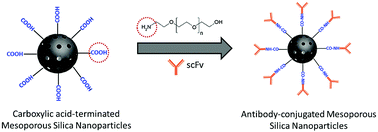Anti-vascular nano agents: a promising approach for cancer treatment
Abstract
Anti-vascular agents (AVAs) are a class of promising therapeutic agents with tumor vasculature targeting properties, which can be divided into two types: anti-angiogenic agents (AAAs, inhibit angiogenesis factors) and vascular disrupting agents (VDAs, disrupt established tumor vasculature). AVAs exhibit an enhanced anti-cancer effect by cutting off the oxygen and nutrition supplement channels of tumors. However, the intrinsic drawbacks, such as poor hydrophilicity, undesirable membrane permeability and inferior tumor targeting ability, discount their anti-vascular efficacy. Fortunately, the development of nanotechnology has brought an opportunity for efficient delivery of AVAs to tumour sites with great therapeutic efficacy. The works summarized in this review will provide an understanding of recent advances of anti-vascular nano agents (AVNAs) with a goal to define the mechanism of anti-vascular-based cancer therapy and discuss the challenges and opportunities of AVNAs for clinical translation.



 Please wait while we load your content...
Please wait while we load your content...